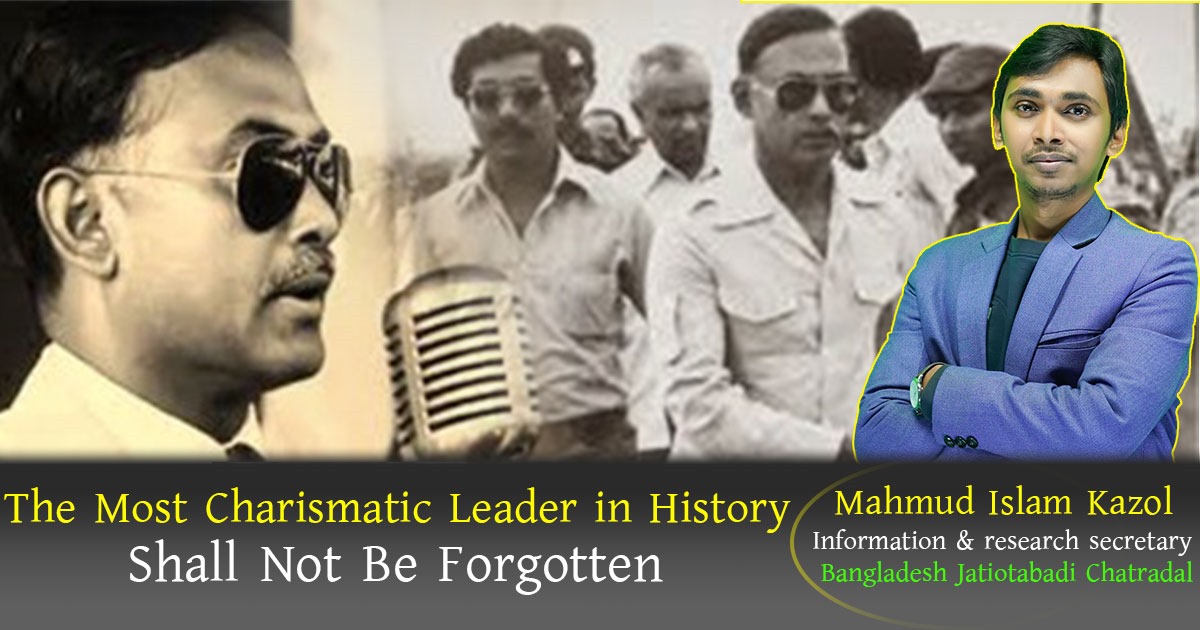S’ahid President Ziaur Rahman's legacy as a statesman in Bangladesh is deeply intertwined with his visionary leadership and unwavering commitment to the nation's progress. Born on January 19, 1936, Ziaur Rahman emerged as a pivotal figure in Bangladesh's history, skillfully navigating the turbulent post-independence era with remarkable resilience and foresight. He inherited a country grappling with the devastating aftermath of the 1971 liberation war. During his presidency, Ziaur Rahman oversaw a significant expansion of the Bangladesh Army, increasing its personnel from 50,000 to 90,000, strengthening the nation's defense capabilities. Beyond the war, the nation was burdened by political instability, economic fragility, and a deeply divided society. Yet, amidst these daunting challenges, Ziaur Rahman's leadership shone brightly, leaving an inerasable mark on Bangladesh's political landscape, economic development, and social fabric.
One of Ziaur Rahman's most significant contributions was his unwavering commitment to inclusive politics. He recognized that a truly democratic nation required the active participation of all its citizens, regardless of their political affiliations. Ziaur Rahman boldly challenged the prevailing trend of one-party rule and opened the doors to multi-party politics, fostering a more representative and participatory political system. This decision, while not without its challenges, laid the foundation for a more inclusive and vibrant democracy in Bangladesh. Ziaur Rahman understood that a politically conscious society was essential for the success of a democratic state. He actively encouraged civil society's involvement in nation-building, recognizing the importance of diverse voices and perspectives in shaping the country's future. It was Ziaur Rahman who, through the Fifth Amendment to the Constitution, enshrined the identity of the people of Bangladesh as "Bangladeshi," solidifying a sense of national unity and belonging.
Ziaur Rahman's leadership extended beyond the realm of politics. He was a military leader who possessed exceptional charisma and strategic acumen. As the chief of the armed forces, he transformed a demoralized and disorganized military into a professional and disciplined force. His ability to inspire and motivate his troops was evident during the liberation war, where he played a crucial role in securing Bangladesh's independence. Ziaur Rahman's military background instilled in him a sense of discipline, efficiency, and a deep understanding of the importance of national security. These qualities served him well as he transitioned into the role of a statesman, guiding Bangladesh through a period of immense challenges and uncertainties.
Ziaur Rahman's economic policies were equally transformative. He recognized that economic empowerment was crucial for Bangladesh's development and the well-being of its citizens. He prioritized manpower export, recognizing the potential of Bangladesh's vast human resources to contribute to the nation's economic growth. This strategy generated valuable foreign exchange, with remittances increasing from a mere $36 million in 1976 to over $150 million by 1981. It also provided employment opportunities for millions of Bangladeshis, both at home and abroad. To facilitate this, Ziaur Rahman established the Bureau of Manpower, Employment and Training (BMET) in 1976. He also focused on public expenditure programs that encouraged participation and self-reliance, such as the 'Food for Work' program, mobilizing rural labor to construct infrastructure like canals and embankments. The 'Canal Digging Program' created irrigation systems and improved agricultural productivity. These initiatives not only provided employment opportunities but also contributed to the development of rural infrastructure.
Furthermore, President Ziaur Rahman initiated crucial agricultural reforms, including the privatization of fertilizer distribution and the introduction of new seed varieties, significantly boosting agricultural production and rural incomes. He also took steps to encourage private sector investment by relaxing regulations and promoting a market-oriented economy. This led to a surge in private sector industrial growth, particularly in sectors like textiles and garments.
Ziaur Rahman's understanding of the social dynamics in Bangladesh was particularly astute. He recognized the growing disillusionment among the middle class, who had witnessed the promises of a new Bangladesh fade away amidst political turmoil and economic hardship. Unlike the feudal elite who had dominated politics before him, Ziaur Rahman empathized with the aspirations of the middle class. He understood their desire for a stable and prosperous nation where they could play a meaningful role. Ziaur Rahman actively sought the participation of the middle class in the political process, recognizing their potential to contribute to the nation's progress. He paved the way for their entry into politics, creating a more inclusive and representative political landscape.
On his birthday, we remember Ziaur Rahman as a visionary leader who steered Bangladesh through a turbulent period in its history. His contributions to the nation are undeniable, and his legacy continues to inspire generations of Bangladeshis. Ziaur Rahman's commitment to democracy, economic development, and social justice remains relevant today, as Bangladesh continues its journey towards progress and prosperity. He will be remembered as a statesman who, despite facing immense challenges, never wavered in his dedication to the nation and its people. His legacy serves as a reminder of the transformative power of visionary leadership and the enduring spirit of Bangladesh.
Writer: Information & research secretary Bangladesh Jatiotabadi Chatradal.





